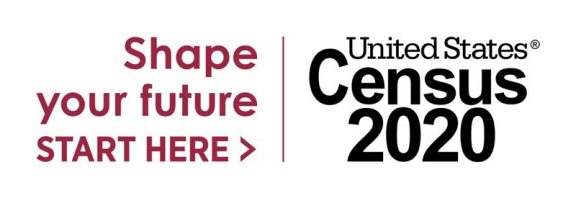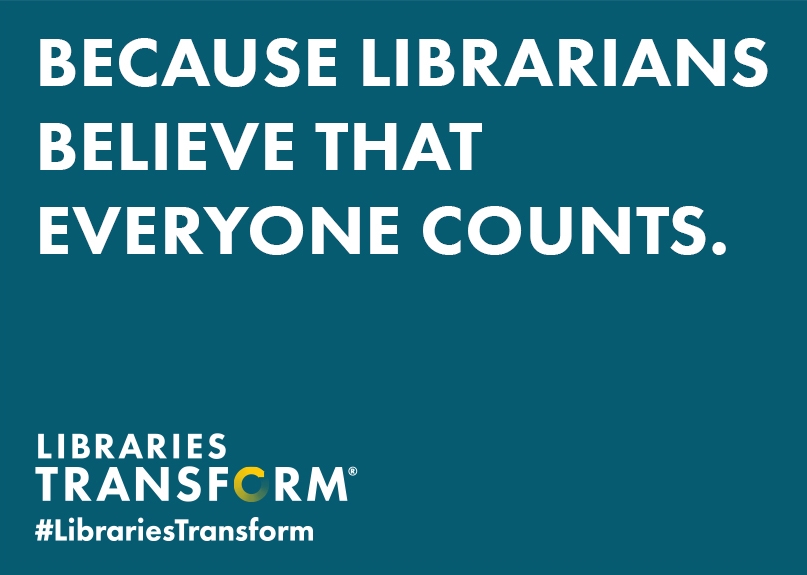10 questions, 10 minutes.
That’s all it takes to complete the 2020 Census either online, by phone, or via paper questionnaire.
The U.S. Constitution requires a count every 10 years of every person living in the United States. The census results determine how the federal government allocates more than $800 billion each year for services that communities rely on, like Head Start, food assistance, and the Library Services and Technology Act.
It is estimated that 13.1 billion dollars (which translates to $2,300 per person) are allocated to Colorado annually based on decennial census statistics.
Census data also determine representation in Congress and the Electoral College, as well as in state and local governments.
Your response matters.
Historically, certain groups of people have been disproportionately under-counted in the census, including young children, people of color and indigenous people, and people experiencing homelessness.
Health clinics. Fire departments. Schools. Even roads and highways. The census can shape many different aspects of our community. If the census misses people, under-counted communities won’t get fair funding for critical programs, and officials won’t have the reliable information they need to make decisions.

How Will the 2020 Census Work?
Beginning on March 12, 2020, the Census Bureau will mail every household in the United States an invitation to respond to the census, including a new option to respond online.
• In areas without reliable mail delivery or traditional mailing addresses, Census Bureau staff will visit households in person instead.
• The Census Bureau will use other methods to count people in group living situations, such as college dorms and military bases, and people experiencing homelessness.
• The libraries are available to anyone needing to use a computer to complete the 2020 Census online.
April 1 is known as “Census Day,” although households can respond before or after that date. Households will receive several mailings from the Census Bureau in March and April with reminders to participate. Beginning in May 2020, Census Bureau staff will visit households that have not yet responded to collect their responses in person.
What questions will be asked?
• Name
• Phone number
• Age
• Sex
• Hispanic Origin
• Race
• Relationship to householder
• Household tenure (own/rent)
• Number of persons in the household
• Does a person usually stay or live somewhere else?
Census responses are confidential. U.S. law strictly prohibits the Census Bureau from sharing personal census responses with anyone—including law enforcement, courts, or any other government agency. The form does not ask for your Social Security number, citizenship status, or other personal identifiers. Name and address are asked only to ensure that each person in the U.S. is counted only once where they live.

How Can You Respond to the 2020 Census?
Households can respond to the census online, by phone, or on a paper questionnaire.
The online and phone questionnaire will be available in 13 languages: Arabic, Chinese (Mandarin and Cantonese), English, French, Haitian Creole, Japanese, Korean, Polish, Portuguese, Russian, Spanish, Tagalog, and Vietnamese.
About the online form
• Optimized to allow people to respond on a smartphone, tablet, or computer.
• Is secure, and responses will be encrypted.
Starting March 12, households can respond online at my2020census.gov — including from a smartphone or tablet. You will input the unique code from the Census mailing, or else your street address. The online questionnaire must be completed in one session; draft responses cannot be saved.
There is no time limit to complete the form. However, for security purposes, if there is no activity for 15 minutes, you will be logged out and need to start again.
A confirmation page will be displayed after submission; there will not be an email or text message confirmation.
The Census Bureau will send paper questionnaires to households that have not responded after several reminders, and will follow up in person if needed.
Have questions or need help responding to the census? The Census Bureau will have a toll-free phone hotline in 13 languages. Call the Census Bureau Customer Service Center at 800-923-8282 or 301-763-INFO (4636).


